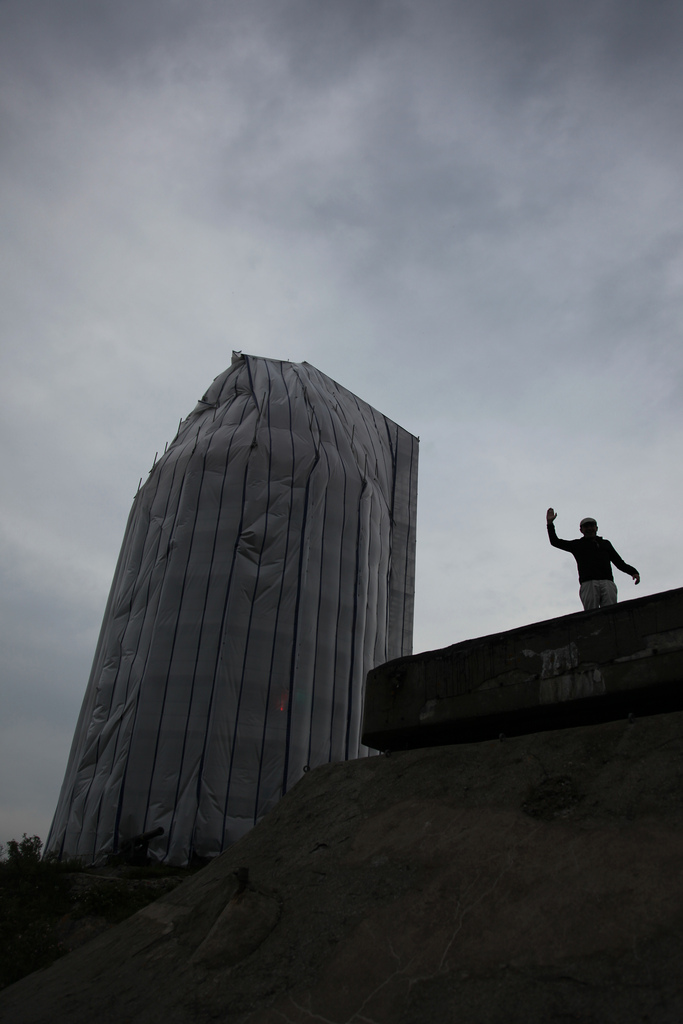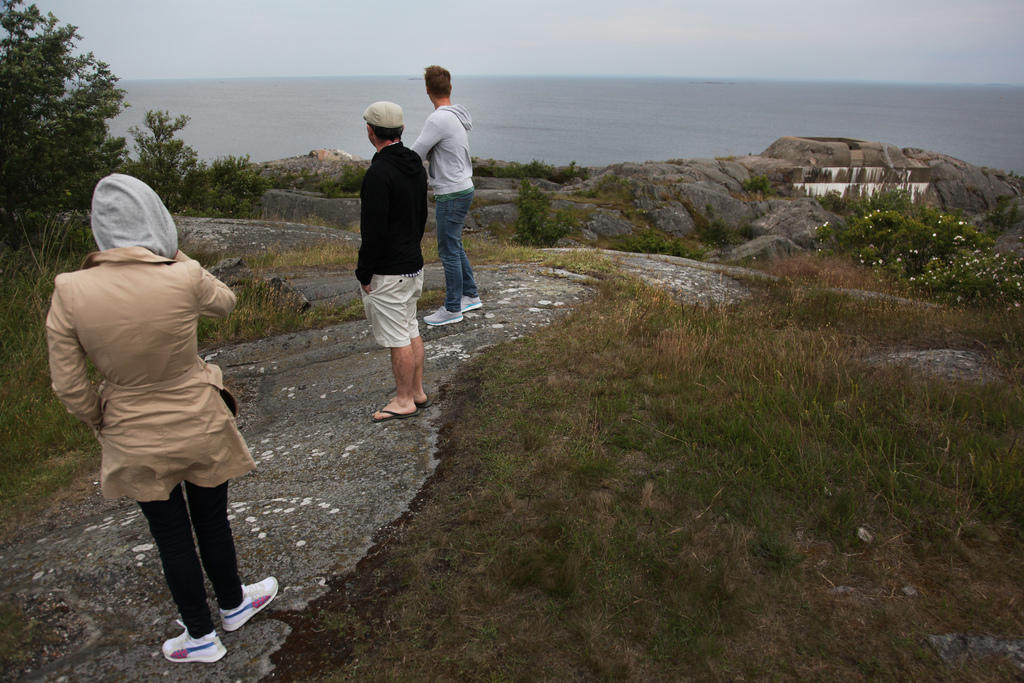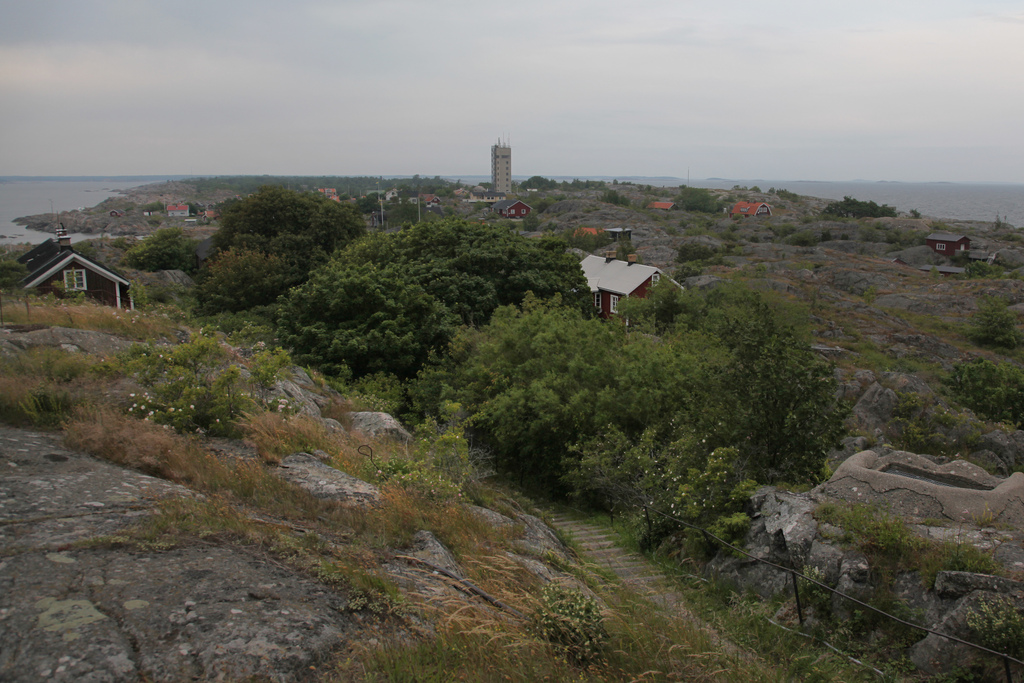Anthony Bourdain, chef and world traveler extraordinaire, is a firm believer that the best way to approach a new culture and community is to check out the marketplace. Lautoka's market was quite a large spread of all things root vegetable and spice, and the smells within the arena brought to mind East Africa, Southeast Asia, and the ever-pungent Subcontinent of India. We shelled out some dollars for peanuts, bananas, and food for the day of movement into the Fijian interior.
After a four hour bus ride around the coast of Fiji, the man waiting for our arrival at a dirt road junction on the side of the highway was Moji, our program "manager" while we were up in the Nakavika village. We played a little Frisbee, a universal crowd pleaser/entertainer, until the carrier made its way in from town.
When it came time to pile on and squeeze in between brothers, mothers, and children, we happily merged with them and blessed the breeze that billowed in from the open flap. The air grew increasingly heavy and cool, and while others found it frigid, my Hoosier blood found it warming and kissed with memories of summer.
Two hours on that bumpy road brought us to a home where we waited for the onward carrier towards Nakavika village. The occasional step uphill squeezed old oranges underfoot and sent juice squirting for meters.
We sat on mattresses on the porch and enjoyed some tea and biscuits, together might I add. Moji and Kimbo took their big hands and crushed four or five biscuits into their mugs and made soup. We all tried it out of curiosity, which from the speed of our decisions to join along made me wonder how much they could sway us to do in the name of new cultural experiences.
It was only 3 or 4pm, and the sun was bursting through the sides of the palms on its way to setting. The mountains were slathered with foliage and looked like cliffs I'd never seen before. Seemed as though they came from the world of Zelda. I snapped photos of them like a shutter-happy maniac.
Finally, the last carrier ended our full day journey with the arrival to Nakavika, where many children flocked to form our welcoming committee. When the village dispersed our weary frames to different houses for the week, I got the good fortune of staying with Moji's brother, Weiss, wife, Fane, and their daughter, Bui, who was also my six year-old bunkmate.
Even though the sun was already set, it was only time for afternoon tea and a little farm corn. We sat Fijian style around a tablecloth as neighbors joined and left after grabbing an ear or sharing a cup of sugary tea. Heads would pop in from outside and give me a firm handshake (along with pull away finger snap) before engaging in speedy Fijian to discuss me.
And then came the kava.
We walked by kerosene lamp with kamikaze frogs leaping in and out of our path. Moji's father acted as the headman of the village, so it was at his house that we were greeted and officially welcomed into the community. A large wooden bowl of water soon turned murky when a thin cloth bag of ground kava was massaged into it. Moji informed us that once the kava hits our lips, we were no longer citizens of America but full-blooded Fijians, living here as part of the whole family. We happily drank to that.
The kava tasted like something I couldn't place. Instantly, the tongue goes numb, and you're looking for a chaser. Not that the drink is particularly disgusting, relatively; it's just not the flavor of which lollipops are made.
We lounged and occasionally sat up to put the coconut shell to our lips, while I attempted to learn a few key terms like "tongue" and "come here" with Moji's youngest brother, Abel, who was living with and taking care of his parents while they were sick. It's surprising how quickly and seamlessly those from Nakavika could make us go from strangers to homogenous among the clan.
I returned to my home for dinner and to learn a local favorite card game called "Last Card", similar to Uno, before heading to the red group's fundraising event for the school. It pleased me like mad to see the emphasis this village put on its schools and education. Every Friday night, the village splits up into four teams (red, yellow, green, and blue) to drink kava and pool together money for the school system. I landed the equivalent of $3.50 U.S. in the pile and became the honored donor, shelling out the tsunami (or massive) bowls of kava to the headmaster, school manager, and everyone edging the room.
Wandering back to my home with a heavy head and sloshing stomach in the pitch black of night, I could just barely see the grass in front of me. Already I had memorized the layout of the Nakavika land, and that pleased me. I was surrounded by a style of living that at times makes more sense to me than American suburbia.
The word that came to mind as I followed the dirt path to my home was "necessary": the reasons for doing anything, the logic behind NOT doing so much else...necessity. What's necessary to survive here cuts out all the clutter and worries we thrive on at home. As it says on many sulus walking around the village, "Fiji is how the world should be."
I slept like a log in paradise.


































